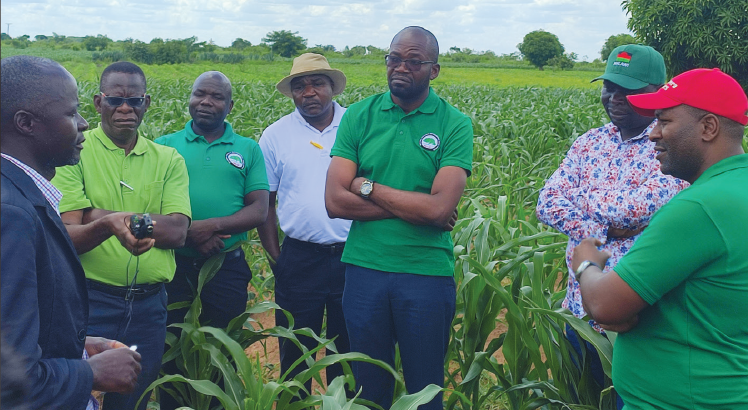Govt targets 300 000MT from irrigation
Minister of Agriculture Sam Kawale says government has embarked on a large-scale irrigation drive targeting to harvest 300 000 metric tonnes (MT) of crops before the next rains to improve food security.
Speaking on the sidelines of the distribution of maize flour under the Lean Season Food Insecurity Response Programme in Dowa on Saturday, he said the project seeks to enable farmers harvest twice before the next growing season, largely through commercial farmers.
On how much has been invested in the project, Kawale, in an interview yesterday, said the ministry has been allocated over K100 billion in to go towards agricultural production.
He said: “Our biggest investment will be irrigation. Several programmes will get a lion’s share of the money and the funds will be accessed by commercial farmers to produce food.”

The minister said from that amount, K30 billion has been allocated to the National Economic Empowerment Fund (Neef), the megafarms initiative will get K16 billion, Lilongwe University of Agriculture and Natural Resources (Luanar) will be allocated K3 billion and the Green Belt Authority will receive K4 billion.
He said: “Apart from these, Agriculture Development and Marketing Corporation [Admarc] has been given K40 billion for operations and investments. All this will help us be food secure.
“Our goal is commercial farming and not the ministry doing the farming.”
Kawale said his ministry has an irrigation strategy that will target all districts.
He said the government will focus on maize and rice production for food security then later diversify to cash crops for export.
In terms of how commercial farmers will access the funds and how government will account for the same, the minister said: “Neef and Megafarms have money now, but have been allocated more in this budget and the funds will be accounted for in the same way the budget funds, which is taxpayers’ money, is accounted for.”
Kawale said consumers will be able to access the produce through Admarc, National Food Reserve Agency (NFRA), Department of Disaster Management Affairs (Dodma) and commercial markets.
Meanwhile, agriculture experts have hailed the move, saying it will help boost food production but cautioned the government to be more strategic in its approach.
In an interview, Luanar-based agricultural economist Horace Phiri said government should focus on sustainable initiatives that will add to the county’s capacity to produce while ensuring food security for future seasons.
He said: “Government should have a clear strategy that it wants to pursue and these ideas should be supported by evidence that it will promote commercial irrigation in the country.
“We have invested so much in agriculture to an extent where the taxpayers wonder if we must continue investing. So, there has to be prudent use of resources and government should be picky in investing where it will yield sustainable benefits. Otherwise, it will just create discontent among taxpayers.”
In a separate interview, another agricultural expert Tamani Nkhono Mvula said the country has huge irrigation potential if sector is properly funded.
In the proposed 2024/25 National Budget, government has concentrated financing to projects designed to boost agriculture commercialisation and productivity, a development that is expected to promote the sector’s resilience to climate and weather related shocks.
Based on The Nation calculations of figures outlined by Minister of Finance and Economic Affairs Simplex Chithyola during the presentation of his budget statement on Friday, the government will allocate K209.04 billion, or about 42 percent of the agriculture budget to six projects geared towards revamping irrigation systems and promoting employment in the sector.





